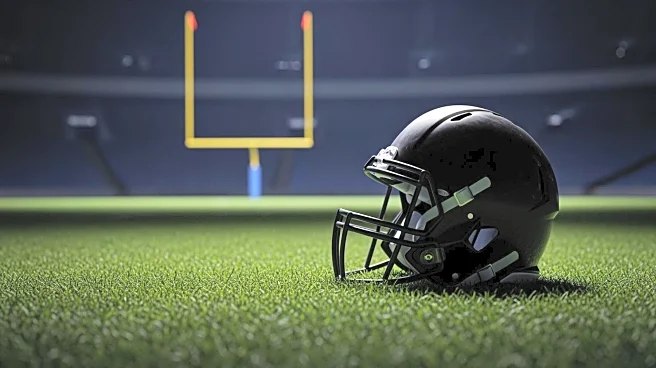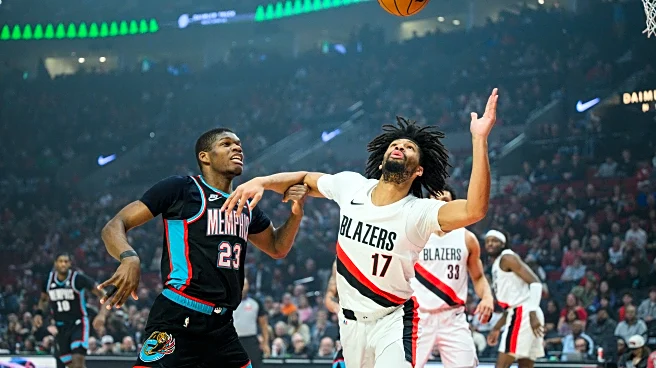What's Happening?
Arch Manning, the quarterback for the Texas Longhorns, sustained an injury during the overtime period of their game against Mississippi State. The incident occurred on the first play of overtime when Manning scrambled
for a first down and was hit by two defenders from Mississippi State. Following the hit, Manning remained on the ground and was subsequently assisted off the field and taken to the medical tent. Backup quarterback Matthew Caldwell replaced Manning and led the team to a 45-38 victory. Manning had an impressive performance before his injury, completing 29 of 46 passes for a career-high 346 yards, three touchdowns, and one interception. The exact nature of Manning's injury is currently unknown, and Texas coach Steve Sarkisian stated that more information would be available on October 27.
Why It's Important?
The injury to Arch Manning is significant as he is a key player for the Texas Longhorns, having played a crucial role in their comeback victory against Mississippi State. Manning's performance has been pivotal in the team's success, and his absence could impact their future games. The uncertainty surrounding his injury raises concerns about the team's ability to maintain their competitive edge. Additionally, Manning's injury highlights the physical demands and risks associated with college football, emphasizing the importance of player safety and medical protocols. The outcome of Manning's condition could influence the team's strategy and lineup in upcoming matches.
What's Next?
Coach Steve Sarkisian is expected to provide an update on Arch Manning's condition on October 27. Depending on the severity of the injury, Manning's recovery process could affect his availability for future games. The team may need to rely more heavily on backup quarterback Matthew Caldwell, who demonstrated his capability by securing the win against Mississippi State. The Longhorns will likely assess their quarterback options and adjust their game plan accordingly. Fans and stakeholders will be closely monitoring Manning's recovery and the team's performance in his absence.
Beyond the Headlines
Arch Manning's injury could have broader implications for college football, particularly in discussions around player safety and the physical toll of the sport. It may prompt further examination of protective measures and medical support for athletes. Additionally, Manning's situation could influence recruitment strategies and the development of backup players, highlighting the importance of depth in team rosters. The incident serves as a reminder of the unpredictable nature of sports and the need for contingency planning.









